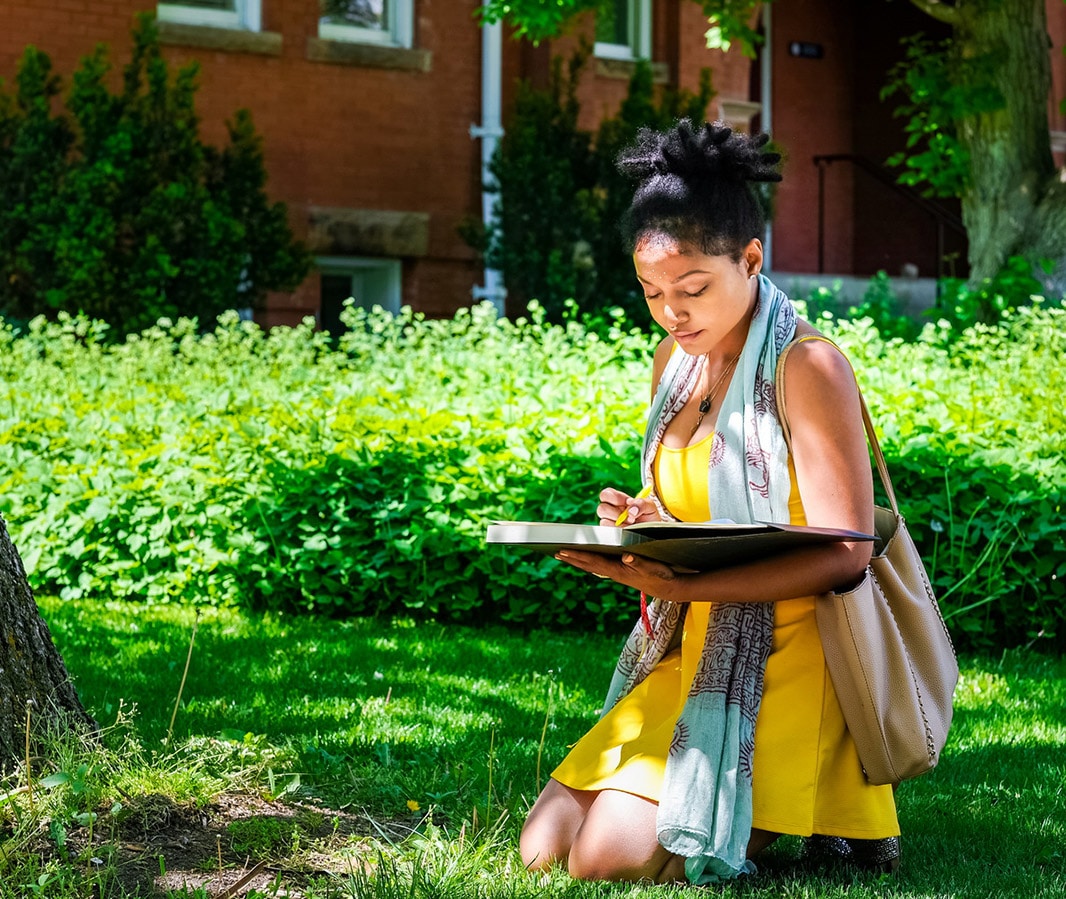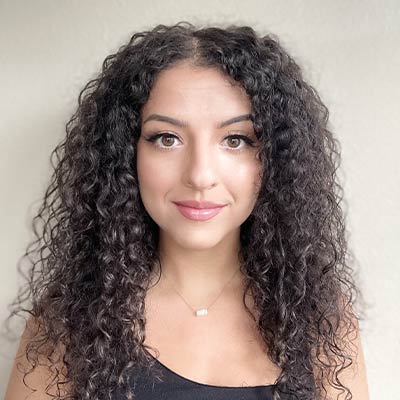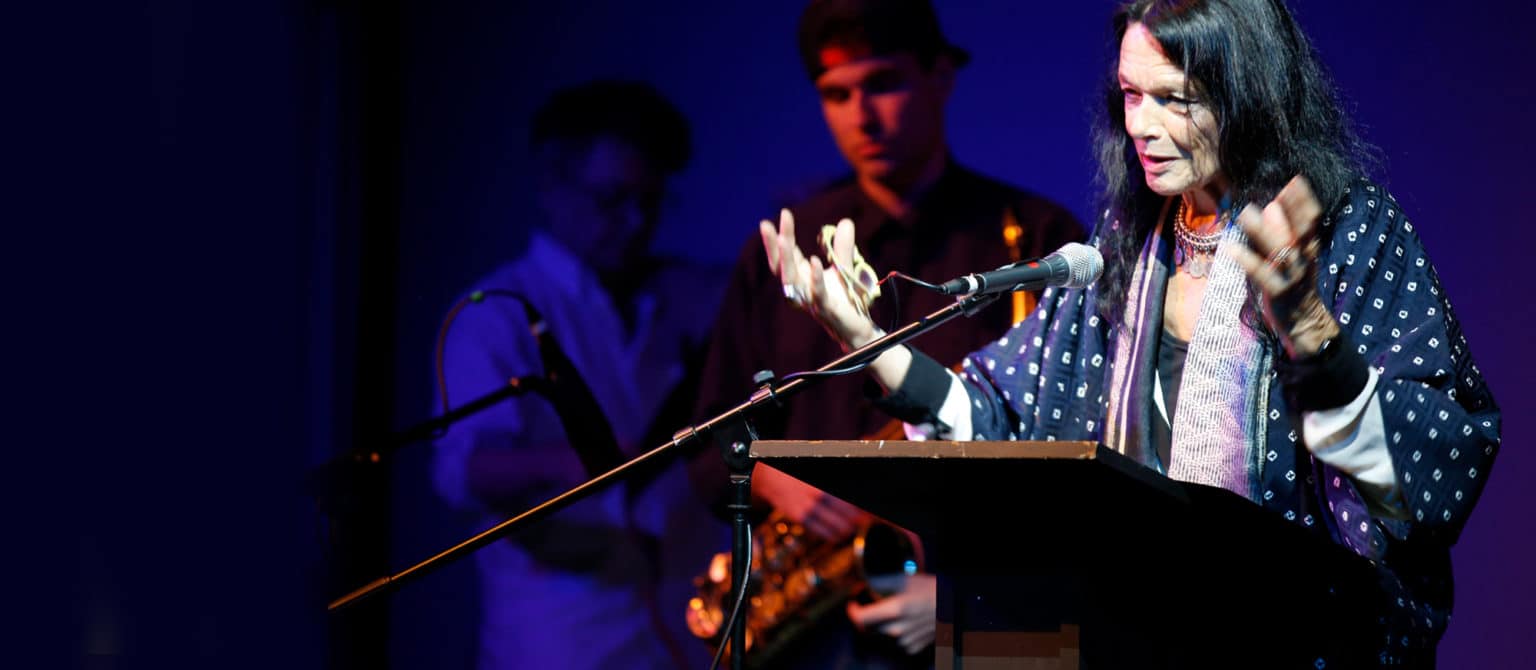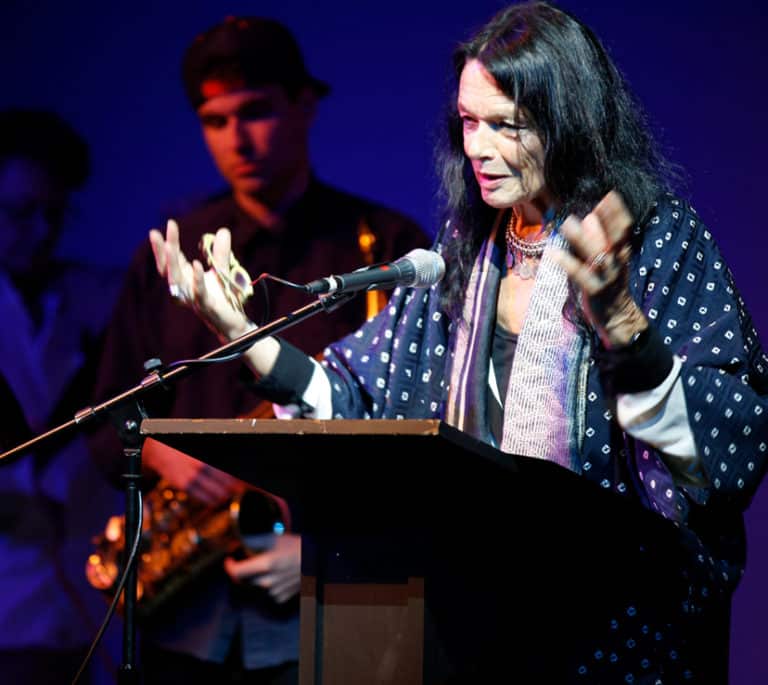BA in Creative Writing and Literature
Creative Writing Degree
Program Overview
Transformative Writing
Among colleges for Creative Writing, the Jack Kerouac School of Disembodied Poetics is unique in its approach to writing as a means of social and personal transformation.
Contemplative Approach
Engage in critical and creative thinking to deepen your awareness of self, others, and the world around you. Develop insights regarding your academic and creative work as well as your own well-being.
Professional Experience
Acquire the hands-on experience, skills, and professional guidance necessary to succeed as an artist or thinker in the writing profession.
Naropa’s creative writing program values experimentation, critical study, and authenticity.
Earn your bachelor’s degree in creative writing and literature at a university where writing workshops, literary studies, and publication opportunities create a deeply integrated experience of creative expression. Engage in contemplative poetics, experimental writing, and explorations of narrative forms while studying eco-poetics, book arts & letterpress, queer literature, and the literature of psychedelics.
You already love to write. Here, you’ll grow as a writer and as a person while discovering fulfilling writing jobs. Our creative writing and literature majors go on to earn graduate degrees in the arts, publish literary works, and become teachers, editors, and communications professionals.
Quick Facts
- On-campus degree
- Unique Open Genre Curriculum
- Flexible Application Requirements
- Transfer up to 75 semester credits
- In-House Publishing Experience
- Intensive Summer Writing Program
- 70% of our students receive financial aid and/or scholarships
- Admissions open for 2024
Program Format
Naropa’s four-year undergraduate program in creative writing and literature redefines traditional creative writing as a journey into oneself and toward connection with others. We offer an on-campus education that allows students to develop themselves and their craft as part of a writing community.
At Naropa, we believe that the best creative writing, whether it’s short story writing, poetry, or a blend of genres, comes from deep personal introspection. We also know that engagement with like-minded communities is an essential sounding board for this kind of introspection. A college for creative writing and literature is only as strong as the writing community it creates.

Course Spotlight
Experimental and Activist Literatures
This course introduces Black Mountain Poets, the Beats, New York School, Black Arts Movement, Language Poets, New Narrative, and Jack Kerouac School faculty work—poetic movements and writers that continue to influence Naropa’s writing landscape, innovation, aesthetics, and activism. By exploring experimental lineages, Naropa archives, as well as contemporary trends influencing the Kerouac School milieu, we participate as readers/writers/activists and invoke critical/creative awareness that informs the writing process. This creative reading and writing workshop invokes a vital space of active experimentation and culminates in a creative portfolio.
Degree
Requirements
A Bachelor of Arts degree such as the Creative Writing and Literature Degree (120 credits) consists of a Core Curriculum (24 credits) and at least one major, as well as minors and/or elective courses of the student’s choosing.
The Creative Writing and Literature Major has a total of 36 credit hours.
Creative Writing & Literature Major Requirements
Gateway
- WRI210 Experimental and Activist Literatures (3)
Milestone
- 300-level and 400-level Writing Workshops: Choose 12 Credits
Writing workshops train in various genres and include poetry, fiction, and cross-genre. Workshops require the regular submission of original work for critique, oral presentation, and editing.- WRI312 Poetry and Poetics (3)
- WRI318 Writing Workshop: Long Poem (3)
- WRI329 Writing Workshop: Contemplative Poetics (3)
- WRI331 Writing Workshop: Creative Nonfiction (3)
- WRI339 Writing Workshop: Flash Fiction (3)
- WRI351–3 Summer Writing Program (2–6)
- WRI362 Writing Workshop: Fiction (3)
- WRI369 Writing Workshop: Narrative Forms (3)
- WRI380 Writing Workshop: Eco-Poetics (3)
- WRI394W Writing Workshop: Writers Practicum with Anne Waldman (1)
- WRI395W Writing Workshop: Writers Practicum with Allen Ginsberg Visiting Fellow (1)
- WRI415 Writing Workshop: Innovative Poetry (3)
- WRI428 Writing Workshop: Innovative Fiction (3)
- WRI440 Writing Workshop: Extended Narratives (3)
- WRI449 Writing Workshop: Embodied Poetics (3)
- WRI451–3 Summer Writing Program (2–6)
- WRI456 Writing Workshop: Poetry in Theory (3)
- WRI460 Writing Workshop: Ekphrastic Writing (3)
- WRI490 Special Topics: Writing Workshop (3)
- 300-level and 400-level Literature Seminars: Choose 9 Credits
Literature seminars examine selected writers’ works, topics, or periods in literary history and require critical papers in standard academic format.- WRI349 Literature Seminar: Modernism and Postmodernism (3)
- WRI355 Literature Seminar: World Traditions and Letters (3)
- WRI441 Literature Seminar: Women Writers (3)
- WRI448 Literature Seminar: Diaspora, Migration, and Borderlands (3)
- WRI455 Literature Seminar: Literary Theory (3)
- WRI457 Literature Seminar: Major Authors (3)
- WRI491 Special Topics: Literature Seminar (3)
- Writers in Community
WRI417 Writing Workshop: Writers in Community (3)
- Electives: Choose 6 Credits
Electives can be any 300-level or 400-level course; professional development, literature seminars, or workshops/Summer Writing Program.
- Capstone
- COR440 Capstone II (3)
Why Choose Naropa?
Open-Genre Curriculum
Engage in creative cross-genre experimentation and experimental approaches to writing and literature. Push beyond your comfort zone to develop your creative voice with Naropa’s open-genre curriculum.
Award-Winning Faculty
At Naropa, award-winning faculty follow in the footsteps of literary greats such as Jack Kerouac School of Disembodied Poetics co-founders Anne Waldman, Allen Ginsberg, and Diane di Prima, and Ken Kesey and Amiri Baraka, who taught at the Kerouac School.
Career Readiness
Naropa equips you with the skills and self-awareness for a rewarding career in writing. Students can engage in editorial work with the student-led literary magazine, Bombay Gin, delve into letterpress printing at the Harry Smith Print Shop.

How this Program Prepares You
Creative experimentation & writing skillset development
The goals of the program include guiding students throughout the process of crafting creative work—from generation to revision—and presenting students with opportunities to interpret and respond to a variety of poetic situations.
Contemplative practice for critical reflection
The program promotes contemplative practice to develop students’ insight regarding their academic and creative work as well as their overall well-being and encourages students to evaluate their own assumptions and the assumptions of the discourse community through critical and creative engagement with a diversity of values.
Putting Theory into Action
The program prepares students for potential careers as artists and thinkers by exposing them to professionals in the field and offering them guidance toward envisioning and meeting their goals.
What You'll Learn
Self-Knowledge
Study mindfulness and use your writing as a tool for looking within.
Innovation in writing
Think beyond the canon and experiment with language in your own work.
Collaborative communication
Learn to give and receive feedback in a supportive community environment.
Publishing experience
Prepare for future writing jobs as a student editor or letterpress printer.
Graduate school and career readiness
Create a polished professional dossier and a powerful writing portfolio.
Career Opportunities with a Creative Writing Degree
Realize your potential in the Naropa Bachelor of Arts in Creative Writing and Literature degree program. Whatever paths you choose, Naropa’s undergraduate degree in creative writing and literature will give you the skills and self-knowledge to take the next steps toward a fulfilling career in writing.
- Author: write and publish stories and books.
- Editor: refine and improve written content for publication.
- Journalist: gather and report news and current events
- Publisher: produce, distribute, and market written materials.
- Teacher: educate students in literature and creative writing.
- Screenwriter: create compelling stories for film and TV.
- Copywriter: craft persuasive content for advertising and marketing.
Hear from a Graduate
I was attracted to Naropa because I was interested in a 360-degree approach to education. The capacity to be transformed by new information relies completely on the student’s own self-awareness and ability to live consciously. My teachers created environments where we learned how to observe and encourage each other as writers, no matter how different our perspectives or styles.
FAQs About the
Creative Writing Degree
What jobs can I get with a BA in creative writing and literature?
What do you learn in a BA in creative writing and literature?
A BA in creative writing and literature will provide you with the skills and knowledge to pursue your career of choice in the field. At the end of your bachelor’s, you’ll have generated a professional dossier and acquired critical analytical skills. At Naropa, you will also develop a deeper awareness of yourself and your bond with the community, grounded in the principles of diversity, inclusion, and sustainability. Learn more about the Naropa Values.
What sets Naropa apart from other universities?
What kind of writing degrees are there?
Is creative writing a BA or BS?
Learn More About the Program

Connect
with your counselor
Rachel Thompson
Assistant Director of Undergraduate Admissions
Prospective students with last names A-G
- 303-970-9831
- rachel.thompson@naropa.edu
- Schedule Appointment

Connect
with your counselor
Jenna Priest
Prospective students last names H-Z
Ready to Apply?
Admission Requirements
Naropa University’s unique approach values both academic excellence and the willingness to carry out introspective work.
Learn more about admission requirements and application process for undergraduate students.
Undergraduate Students
- Students with a 3.0 GPA or Higher
Applicants with a strong history of academic performance are welcome with minimal requirements.
- Students with Less than 3.0 GPA
If your academic record hasn’t been as strong, but you wish to benefit from a Naropa education and will contribute to our growing community, we strongly encourage you to submit your application.
- Transfer your College Credit
Present an official college transcript with 60 or more transferrable credits together with your application to apply as a transfer student.
To learn more about requirements for first-time and transfer students, read our undergraduate students requirements page.
International Students
No matter where you’re from or how far you’ve traveled, you can feel at home at Naropa. Our university is built on a foundation of inclusion, diversity, and welcoming other cultures with open arms. The more diverse our student body, the stronger we are. We value your future contributions to our dynamic community.
Costs and Financial Aid
At Naropa, we strive to make education accessible to as many students as we can. Take a look at our undergraduate costs & aids page to learn about tuition and other costs, as well as financial aid opportunities, or use our cost calculator to get an idea of what you will pay at Naropa.
Undergraduate Scholarship Opportunities






